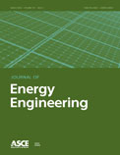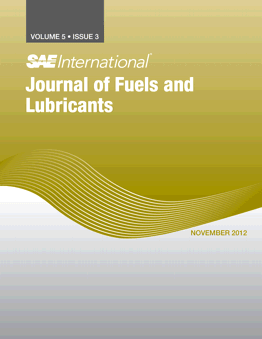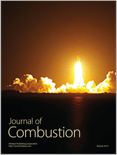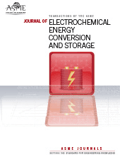
Fuels
Scope & Guideline
Exploring the Future of Sustainable Energy Solutions
Introduction
Aims and Scopes
- Biofuel Development and Utilization:
Research on the production, optimization, and application of biofuels, including biodiesel, bioethanol, and other renewable energy sources from biomass. - Fuel Properties and Performance Analysis:
Studies focusing on the physical and chemical properties of fuels, combustion characteristics, and performance assessments in various engines and systems. - Catalytic Processes and Fuel Upgrading:
Innovations in catalyst technologies for fuel conversion processes, including hydroprocessing, gasification, and reforming techniques. - Environmental Impact and Sustainability:
Assessment of the environmental implications of fuel production and utilization, including lifecycle analysis, carbon footprint evaluation, and sustainable practices. - Advanced Analytical Techniques:
Application of novel analytical methods and modeling approaches to study fuel behavior, combustion processes, and material characteristics.
Trending and Emerging
- Sustainable Biomass Utilization:
An increasing focus on the use of biomass for fuel production, emphasizing sustainable sourcing, processing techniques, and integration into circular economy frameworks. - Advanced Machine Learning Applications:
The application of machine learning algorithms for predictive modeling in fuel property analysis and performance optimization is on the rise, reflecting the growing intersection of data science and energy studies. - Hydrogen Production and Fuel Cells:
Research into hydrogen as a clean fuel alternative and advancements in fuel cell technologies are gaining traction, driven by the global push for decarbonization. - Waste-to-Energy Technologies:
Innovations in converting organic waste into energy sources, including biogas production and gasification processes, are becoming increasingly significant in the journal's scope. - Techno-Economic Assessments:
There's a growing emphasis on techno-economic analyses of fuel production processes, helping to evaluate their viability and competitiveness in the energy market.
Declining or Waning
- Traditional Fossil Fuel Studies:
Research focused solely on traditional fossil fuels and their extraction processes is becoming less prominent as the field shifts towards renewable and sustainable energy solutions. - Conventional Engine Studies:
There is a noticeable reduction in papers focused on conventional combustion engines without consideration of alternative fuels or hybrid technologies. - Basic Chemical Kinetics:
While foundational studies are essential, there appears to be a waning interest in basic chemical kinetics of fossil fuels, as more complex and applied studies take precedence. - Static Fuel Quality Assessments:
Static evaluations of fuel quality without a dynamic or performance-oriented approach are being overshadowed by studies that integrate real-world applications and performance metrics.
Similar Journals

JOURNAL OF ENERGY ENGINEERING
Elevating Knowledge in Civil and Energy EngineeringJOURNAL OF ENERGY ENGINEERING, published by the ASCE-Amer Soc Civil Engineers, serves as a pivotal resource in the fields of civil and structural engineering, energy engineering, and nuclear energy research. With an ISSN of 0733-9402 and an E-ISSN of 1943-7897, this esteemed journal demonstrates a consistent commitment to advancing knowledge in energy systems, sustainability, and waste management. Ranking within the second quartile in several categories—including Civil and Structural Engineering and Energy Engineering and Power Technology—this journal maintains a strong reputation, underscored by its Scopus rankings that place it in the top tiers of its discipline. Accessible from 1982 through 2024, the journal provides researchers and professionals meaningful insights through rigorously peer-reviewed articles, critical reviews, and case studies that address contemporary challenges in energy utilization and infrastructure development. Without open access options, it ensures the integrity and credibility of published work, showcasing influential research that contributes to sustainable solutions in energy and environmental frameworks. Researchers, professionals, and students alike will find the JOURNAL OF ENERGY ENGINEERING an indispensable platform for exploration and dissemination of innovative ideas within the realm of energy and engineering.

SAE International Journal of Fuels and Lubricants
Advancing the Future of Energy SolutionsWelcome to the SAE International Journal of Fuels and Lubricants, a leading peer-reviewed publication dedicated to advancing knowledge in the crucial fields of fuel technology and lubrication science. Published by SAE International, this journal serves as a vital resource for researchers, industry professionals, and students engaged in the study and application of innovative fuels and lubricants. With an impact factor indicative of its importance, the journal is ranked in the Q3 category for both Fuel Technology and Pollution, highlighting its critical role in addressing global energy and environmental challenges. Covering a range of topics from fundamental research to practical applications, the journal not only contributes to academic discourse but also serves to inform industry practices. Our publication spans the converged years from 2009 to 2024, reflecting a commitment to continuous scholarly contribution. While currently operating under a traditional access model, the journal aims to foster an inclusive environment for discourse in the rapidly evolving fields of energy and environmental science.

ATOMIC ENERGY
Illuminating the path of innovation in atomic science.ATOMIC ENERGY is a distinguished journal published by SPRINGER, focusing on pivotal advancements and research within the field of Nuclear Energy and Engineering. With an ISSN of 1063-4258 and an E-ISSN of 1573-8205, this journal has been a critical resource since its inception in 1956, serving both historic and contemporary scientific inquiries into nuclear technologies. Currently positioned in Q3 of the Nuclear Energy and Engineering category, ATOMIC ENERGY ranks 49 out of 77 in Scopus, representing a percentile of 37%, highlighting its relevance in the research community. While it is not an open access journal, it continues to draw a diverse readership eager to engage with the latest findings and innovations in nuclear science. The journal’s objectives include fostering collaborative research, sharing expertise, and addressing contemporary challenges in nuclear energy. As such, ATOMIC ENERGY remains an essential platform for researchers, professionals, and students alike, contributing significantly to the ongoing dialogue in the field.

Journal of Combustion
Igniting Innovation in Combustion ScienceJournal of Combustion is a premier academic journal dedicated to the field of combustion science and technology, published by HINDAWI LTD. With an ISSN of 2090-1968 and an E-ISSN of 2090-1976, the journal has been an open-access platform since 2008, ensuring that cutting-edge research is accessible to all. Based in the United States at Adam House, 3rd Flr, 1 Fitzroy Sq, London W1T 5HF, England, the journal publishes articles spanning various relevant disciplines, contributing to knowledge in Chemical Engineering, Fuel Technology, and Energy Engineering. As of 2023, it ranks in the Q3 quartile in Chemical Engineering (miscellaneous) and Fuel Technology, and in Q4 in Condensed Matter Physics and Energy Engineering and Power Technology, highlighting its growing impact and relevance in these fields. Researchers will find valuable insights as the journal converges its findings from 2010 to 2024. With a focus on promoting innovative approaches and exploring new frontiers in combustion research, the Journal of Combustion continues to be an essential resource for academics, professionals, and students committed to advancing the understanding and application of combustion processes.

Journal of the Japan Institute of Energy
Empowering Energy Innovation.Journal of the Japan Institute of Energy, ISSN 0916-8753, is a reputable academic journal dedicated to the field of energy studies, reflecting the dynamic and evolving landscape of energy research. Published by the Japan Institute of Energy, the journal serves as a platform for disseminating innovative research, technologies, and methodologies related to energy engineering, renewable energy sources, and sustainability practices. While this journal does not currently offer open access, it remains a vital resource for professionals, researchers, and students alike, particularly those focused on advancing knowledge within Energy Engineering and Power Technology, Fuel Technology, and related areas. As of 2023, it is ranked in the Q4 quartile across several categories in Scopus, which highlights its foundational role in fostering scholarly discourse, despite its lower ranking in the competitive global landscape. Established in 1990 and continuously evolving, the journal provides insights into the challenges and innovations in the energy sector, making it an essential read for anyone invested in the future of energy solutions.

Solid Fuel Chemistry
Illuminating the Path to Cleaner Energy SolutionsSolid Fuel Chemistry is a pivotal journal published by PLEIADES PUBLISHING INC, dedicated to advancing knowledge in the fields of chemical engineering, chemistry, and fuel technology. With its ISSN 0361-5219 and E-ISSN 1934-8029, this esteemed publication has been contributing to the scientific community since its inception, covering extensive research from 1975 to 2024. Operating within the Q3 and Q4 quartiles, it holds a significant position among peers in its categories, ranked 94th in Energy & Fuel Technology and 212th in General Chemical Engineering. Although it lacks an open access option, the journal remains a vital resource for researchers, professionals, and students eager to explore innovative developments in solid fuels and their applications. The articles published in Solid Fuel Chemistry provide essential insights, facilitate collaboration, and inspire further research, making it an indispensable platform for anyone engaged in this essential field of study.

COKE AND CHEMISTRY
Uncovering Insights in Coke's Chemical ApplicationsCOKE AND CHEMISTRY, published by PLEIADES PUBLISHING INC, is a vital resource for researchers and professionals in the fields of Environmental Chemistry, Fuel Technology, and Process Chemistry and Technology. With an ISSN of 1068-364X and an E-ISSN of 1934-8398, this journal not only focuses on the theoretical and practical aspects of coke production and its chemical applications but also addresses contemporary challenges in sustainability and energy efficiency. Although currently classified in quartile Q4 across its categories for 2023, this journal serves as an essential platform for disseminating innovative research and fostering discussions among scientists. The Scopus rankings reveal its niche yet notable contributions, with its standings being #102 in Energy & Fuel Technology and #135 in Environmental Science. Researchers and students alike can benefit from its unique insights and findings, which contribute to the ongoing dialogue in these interdisciplinary fields. While the journal does not offer open access, its curated content remains integral for advancing knowledge and research applications in coke-related chemistry.

Journal of Electrochemical Energy Conversion and Storage
Transforming Energy Storage and ConversionThe Journal of Electrochemical Energy Conversion and Storage, published by ASME, is a premier platform for cutting-edge research in the fields of electrochemistry, energy engineering, and materials science. With an ISSN of 2381-6872 and an E-ISSN of 2381-6910, this journal aims to disseminate high-quality articles that contribute to the understanding and application of energy conversion and storage technologies. Notably recognized in the 2023 Category Quartiles as Q2 in multiple categories including Electronic, Optical and Magnetic Materials, Energy Engineering and Power Technology, and Mechanical Engineering, it reflects a strong academic impact within its field. The journal also boasts competitive Scopus rankings, highlighting its relevance and influence across disciplines. Operating under an open access model, the journal ensures that research findings are widely accessible, fostering collaboration and innovation among researchers, professionals, and students globally. As we move toward a more sustainable future, the Journal of Electrochemical Energy Conversion and Storage plays a critical role in advancing technologies that promise to reshape how we harness and utilize energy.

Journal of the Korean Society of Combustion
Connecting Ideas to Drive Combustion ExcellenceThe Journal of the Korean Society of Combustion, published by the esteemed Korean Society of Combustion, is a pivotal platform that disseminates groundbreaking research in the field of combustion science. With its ISSN 1226-0959 and E-ISSN 2466-2089, this journal serves as a reliable source for both theoretical developments and practical applications pertaining to combustion technologies. As part of the thriving research community in South Korea, the journal plays a crucial role in advancing knowledge on combustion processes, alternative fuels, and emissions reduction technologies. Researchers, professionals, and students alike benefit from the journal's commitment to high-quality publications that foster innovation and collaboration within the interdisciplinary realms of energy and environmental sciences. While currently not an open-access journal, the Journal of the Korean Society of Combustion ensures that its content remains accessible to a broad audience through institutional subscriptions and partnerships, reinforcing its impact in the academic community.

INTERNATIONAL JOURNAL OF ENERGY RESEARCH
Exploring the frontiers of energy engineering and policy.INTERNATIONAL JOURNAL OF ENERGY RESEARCH (ISSN: 0363-907X; E-ISSN: 1099-114X), published by Wiley-Hindawi, stands at the forefront of energy research, offering a scholarly platform pivotal for advancing knowledge in the fields of energy engineering, nuclear energy, fuel technology, and renewable energy systems. With an impressive Q1 and Q2 ranking across several categories as of 2023, this journal reflects a commitment to high-quality, peer-reviewed research that addresses both theoretical and practical challenges in the energy sector. Now an Open Access journal since 2023, it enhances accessibility and dissemination of cutting-edge research to a global audience. Located in the United Kingdom, with an active publication history dating back to 1977, the journal aims to contribute to sustainable energy solutions and innovative technologies. Researchers, professionals, and scholars will find valuable insights and discussions here, bridging gaps in energy research and policy-making.